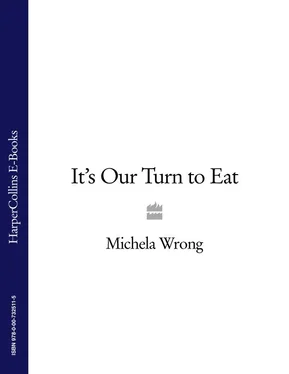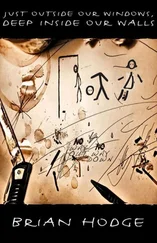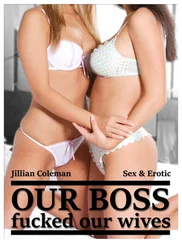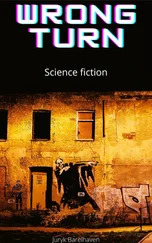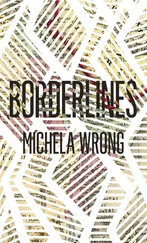The various schemes not only enriched senior officials, they provided slush funds for what the ruling party knew would be fiercely contested elections. Pattni ploughed his profits into the construction of the Grand Regency, a five-star hotel in central Nairobi as gilded and ornate as Cleopatra's boudoir. The ordinary Kenyan, for his part, lost anywhere between $600 million and $4 billion as his country's foreign exchange reserves, rather than being boosted, were systematically hoovered up by the well-connected. Goldenberg pushed the country's inflation into double digits, caused the collapse of the Kenya shilling and a credit squeeze so severe it led to business closures and mass sackings, and left the government unable to pay for oil imports and basic health and education. The resulting recession was still being felt fifteen years later.
Goldenberg captured the very essence of Kenyan corruption. For if only a tiny elite got obscenely rich on the back of it, the sleek Pattni carefully shored up his enterprise with a liberal distribution of gifts: a form of insurance. The astonishing extent of wider Kenyan society's complicity would only be exposed in 2004 when investigators published a list of those alleged to have benefited from Pattni's largesse. Gado, the Nation 's brilliant cartoonist, captured the moment with one of his sketches. ‘Anybody who has not received Goldenberg money, please raise your hand,’ runs the caption. Below, a variegated cross-section of Kenyan society stares at the reader, boggle-eyed, uncomfortable, shifty: a bewigged lawyer, a Muslim preacher, a portly mzungu , a stout matron, a notebook-wielding journalist, a uniformed nurse, a scruffy panhandler. No one moves. All, at one point, have benefited from Goldenberg. The ‘list of shame’, as it was dubbed, ran to 1,115 entries.
‘Africans are the most subservient people on earth when faced with force, intimidation, power. Africa, all said and done, is a place where we grovel before leaders.’
JOHN GITHONGO, Executive magazine, 1994
Working alongside the director of public prosecutions and a brand-new ministry of justice – an institution phased out under Moi – John Githongo had the job of digging down through this purulent history, sorting through the layers of sleaze.
The judiciary, which had become stuffed over the years with bribable magistrates ready to do Moi's bidding, must be purged: scores would eventually be publicly denounced, dismissed or encouraged to retire. Ministry departments needed to be cleansed of a generation of bent senior procurement officers who had for decades used public procurement as a source of illicit wealth, stealing, one study estimated, $6.4 billion between 1991 and 1997. 16 An inquiry, the Bosire Commission, was launched to probe the Goldenberg scandal. Another, the Ndung'u Commission, probed the land-grabbing phenomenon. Yet another was established to investigate the scandal of pending bills. In a grand gesture of good faith, Kenya also became the first country in the world to ratify the UN Convention against Corruption.
Then there were the two pieces of legislation Kibaki had announced on the lawns of State House soon after his inauguration: the Public Officer Ethics Act, which spelt out a code of conduct for public officers and obliged them to declare their wealth; and the Anti-Corruption and Economic Crimes Act, which created the Kenya Anti-Corruption Commission (KACC), a doughty successor to the anti-corruption authority set up but rapidly neutered under Moi.
John helped ensure that the directorship of the new institution, which he eventually hoped to see given prosecutorial powers, went to Justice Aaron Ringera, whom he had befriended during his time at TI-Kenya on a long-haul flight to a World Bank meeting. Convinced that this former solicitor general was the perfect candidate for the job, he went in person to lobby the various political party leaders – not all of whom shared his enthusiasm for Ringera – to support the appointment. ‘I put my reputation on the line, without hesitation or equivocation. I had complete faith in Ringera.’ John was also partly responsible for the KACC director being granted one of Kenya's most generous civil service pay awards. The bigger the salary, the easier it would be for the holder of this key institution to resist temptation, he told the sceptics.
In NARC's flurry of law-making, one thing, however, was made clear. These inquiries would not go to the very top of the chain. Moi's lieutenants might be vulnerable to prosecution, but the former president himself would remain beyond pursuit. The new administration justified this stance on the grounds that ordinary Kenyans, grateful for Moi's tactful withdrawal from the political scene, would be revolted by the sight of a venerable elder being hounded through the courts. It was an argument John endorsed. He should have been more alert to the gesture's underlying message. Even in the new-look, squeaky-clean, corruption-phobic Kenya, the really big players could expect to get off scot free, while the smaller fry would be held to account.
As he put in his endless working days, friends from the old days noticed with concern that John, originally taken on as a consultant, now spoke in terms of ‘we’ when referring to State House. It was ‘our government’, ‘our administration’, and when cynics expressed scepticism, he grew annoyed, for it meant doubting John himself. Having decided that NARC represented Kenya's best chance to tackle a deep-rooted blight, he had deliberately failed to install a safety net. Some saw this as a step further than was wise, or was warranted by his job description. ‘He was using the language of government, when he should have seen himself as someone who had been seconded to government,’ says anti-corruption campaigner Mwalimu Mati. ‘He should have retained an intellectual distance, seen himself as an adviser, a specialist.’
Others viewed it as typical of a man who had to believe passionately in his allotted task to function at all. ‘He went into it with a lot more idealism than I thought warranted. But John is a conviction person, it's a personality type,’ says David Ndii. ‘With him, it's all about the heart. When John trusted someone, he did it completely. And when he was disappointed, he flipped completely. He has this pendulum thing.’ Beguiled by the sheer physical solidity of the man, his elders missed this emotional volatility. It made John a far more unpredictable player than those who had appointed him realised. ‘He probably didn't have the right character for the job,’ says Ndii. ‘Government is all about perseverance. John was disposed to the melodramatic.’ The balked romantic can prove surprisingly vindictive, turning avenging angel where others might simply withdraw into a sulk.
As a journalist, John had railed against two weaknesses he saw as intrinsic to his continent's predicament: the extraordinary deference African societies traditionally show their elders, and their meek passivity when confronted by rulers ready to use violence to remain at the helm. Moi, famously, had instructed his ministers to ‘sing like parrots’. ‘You ought to sing the song I sing,’ the president had told his cabinet. ‘If I put a full stop, you should also put a full stop. That way the country will move forward.’ The crudeness of the order, the exhortation to abandon all critical thought, argued John, exposed a humiliating respect for power for its own sake. Yet now that he was within the citadel, both insights momentarily eluded him. ‘There was a reverential tone in John's voice when he talked about Kibaki,’ remembers Rasna Warah, a columnist for the Nation and an old acquaintance. ‘It would be “the president thinks this”, “the president wants that”, never just “Kibaki”. It was a tone of total awe, as though the man had become a living saint.’
Читать дальше
